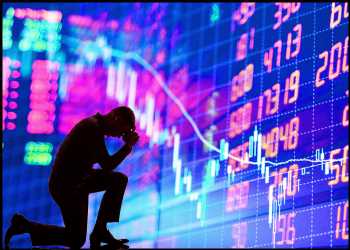
Asian Shares Extend Losses On Growth Worries
Asian stocks extended losses for a third day running Friday on concerns about elevated inflation and slowing global growth. Japanese markets were closed for Autumnal Equinox holiday.
Chinese shares fell notably on growth concerns, with Nomura cutting its China 2023 annual growth forecast further to 4.3 percent from 5.1 percent in light of ongoing COVID woes.
The benchmark Shanghai Composite Index dropped 20.54 points, or 0.7 percent, to 3,088.37, while Hong Kong’s Hang Seng Index slumped 1.2 percent to 17,933.27.
Seoul stocks tumbled, with the Kospi average plunging 1.8 percent to 2,290 amid fears that the global recession may deepen. SK Innovation plummeted 6.3 percent and LG Energy Solution lost 5.7 percent.
South Korea’s producer prices dropped for the first time in nearly two years in August on the back of a decrease in international crude prices amid recession woes, central bank data showed earlier in the day.
Australian markets fell sharply to hit over two-month lows as traders returned to their desks after a holiday on Thursday.
The benchmark S&P ASX 200 Index dove 1.9 percent to settle at 6,574.70, marking its lowest level since July 1. The broader All Ordinaries Index ended 1.9 percent lower at 6,788.70.
Technology stocks followed their U.S. peers lower, with Xero and Block tumbling 8-9 percent. Financials and energy stocks also ended broadly lower.
Investors ignored the results of a survey showing that the manufacturing sector in Australia expanded at a fractionally higher pace in September.
Across the Tasman Sea, New Zealand’s benchmark S&P/NZX 50 Index ended 0.7 percent lower at 11,434.82 – marking its lowest level in nearly two months.
U.S. stocks ended lower for a third straight session overnight as investors fretted about the possibility of a recession and further volatility in stock and bond markets.
The Dow shed 0.4 percent and the S&P 500 gave up 0.8 percent to hit three-month closing lows, while the tech-heavy Nasdaq Composite fell 1.4 percent to its lowest closing level in well over two months.
Source: Read Full Article